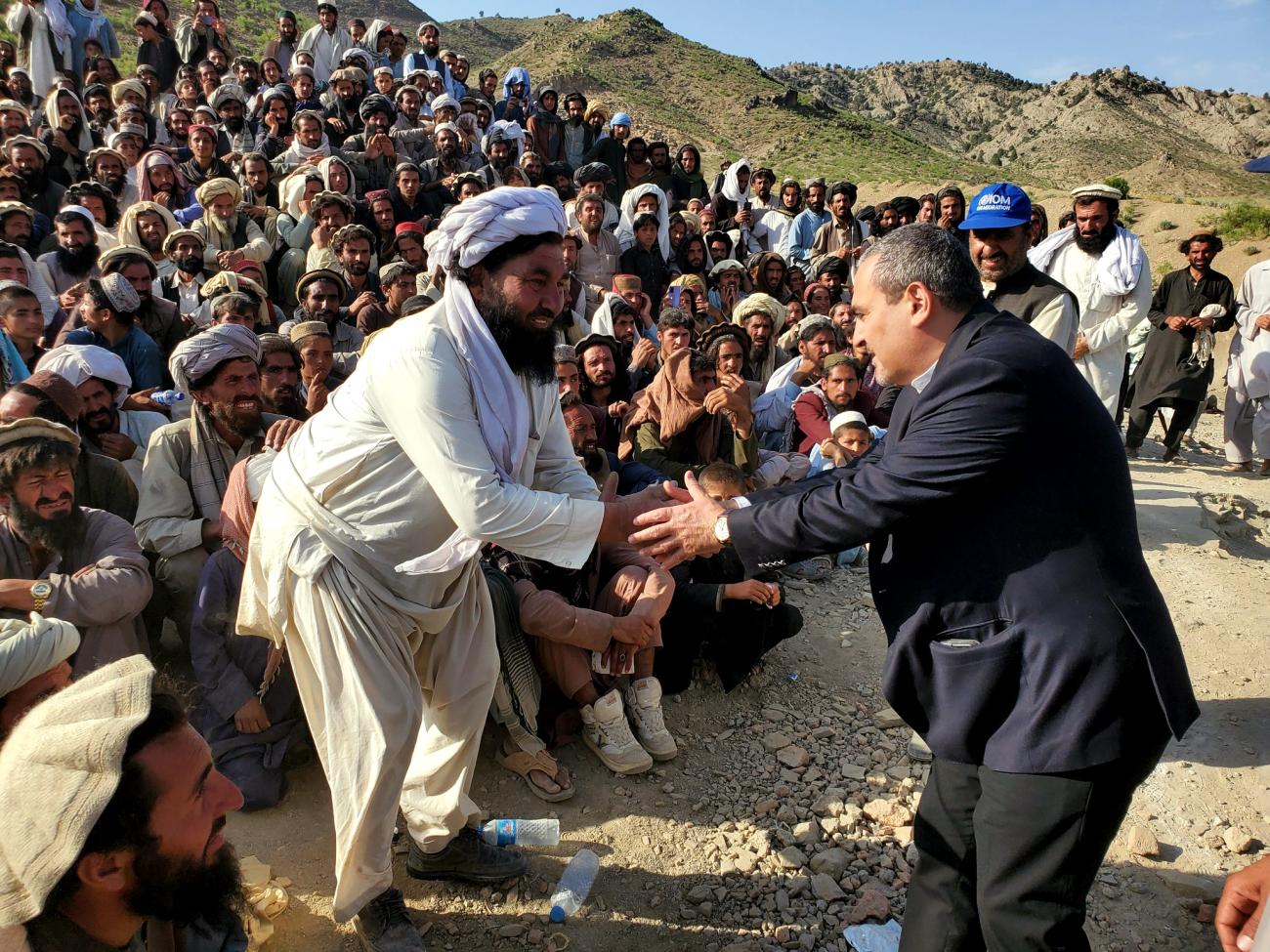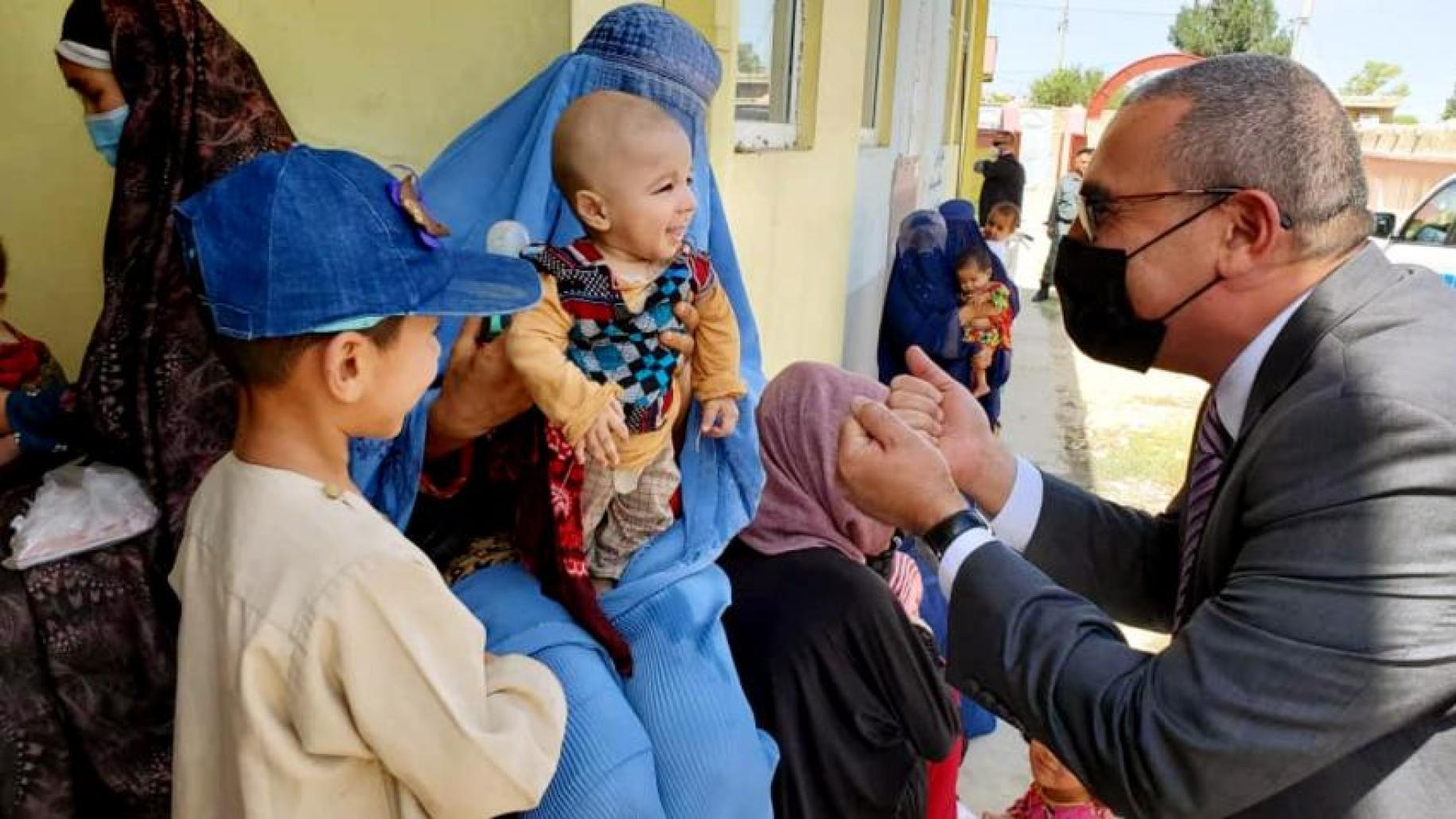Afghanistan and "the Last Best Hope Humanity Has"

In August 2021, the Taliban advanced on Afghanistan’s capital city of Kabul and took control of the country. Fearing violence and persecution, thousands of people fled the country. For those who stayed, life changed unrecognizably.
Today, more than 9 in 10 Afghans live in poverty, with 24.4 million people reliant on humanitarian aid in order to survive. At the same time, mounting restrictions on freedoms continue to exclude women and girls from public life.
Since his appointment over three years ago, Dr. Ramiz Alakbarov the former UN Resident and Humanitarian Coordinator in Afghanistan, has worked with his UN team and partners to navigate this complex shift in power and ease the mountain of suffering faced by people across the country. Now, the UN country team just published its latest Strategic Framework for Afghanistan, outlining the priorities of the organization in support of the Afghan people through 2025.
In a recent podcast interview ‘Awake at Night’ with the UN Under-Secretary General for Global Communications Melissa Fleming, the Resident Coordinator reflects on the challenges of working under two tumultuous years of Taliban rule and the desperate need to build long-term prospects for the children of Afghanistan.
From confronting desperation and misery, to finding a sense of hope and duty amid the darkness, this is what keeps Ramiz awake at night and motivates him to keep going every morning.
Everything starts with education
“The first thing they [the people of Afghanistan] would ask for is actually, ‘Give us some education opportunities.’ And it's been so consistent that I even asked community elders a question. I said, ‘Why are you always asking for education?’ They said, ‘Look around, what do you see here? Nothing...‘We may ask for food, we may ask for medicine, but it's not going to solve our problem. If we're going to get some of us educated, maybe we'll have better ideas what to do. And then we can get out of this situation’
I also remember going to the Gyan district during the earthquake and seeing the children who have lost all- households and families and everything. You bring food, you bring assistance, and yet, you feel so small. It's not just food and assistance you need to give these children. You need to give them life, a life of full opportunities, a whole life of dignity.”

On not walking away from women’s rights
“I came to this job from working for the women's rights movement for more than a quarter of a century. Coming to Afghanistan and trying to deal with a situation where women are denied basic rights is very challenging. And the most difficult part of it is that they're now recruiting women who are supposed to be working there to promote exactly those type of restrictive laws.
Having said this, the 20 plus years of this investment which was made in Afghanistan definitely didn't pass away just like that. You have very vibrant civil society, very active women, women's movement, and women's organizations, and they are quite numerous, and they are still operating now. Many things have been officially disallowed. There are barriers, but there are also ways of working.
So, how does it make me feel? Not hopeless. To some extent, angry, because we worked for decades and we should never walk away from what we did. But also, I have faith. I have faith in Afghanistan and the right choice which people will make.”
We can’t wait another 20 years to invest in development
“We've seen some coverage from Afghanistan about people selling their organs. Some of those images of young girls where you can see the scar. I think about this often. I think about people who are forced to sell their children into marriage or some sort of an arrangement. What makes a person secure, safe, what doesn't turn someone to a negative coping strategy - including joining a terrorist movement, including radicalization - is not just an availability of a high energy biscuit. Imagine someone sitting under plastic sheeting material and munching on a high energy biscuit and waiting another 20 years. The fact is that if you don't have education, if you don't have health services, if you don't have jobs, if you don't have income, you will run somewhere. You will join a radical movement. You will eventually end up selling children and organs. So, we must make this minimum developmental standard something universal. And until we reach that point, we won't be able to make the difference."
On the sense of duty
“I like to think of myself as someone who wants to be useful. I joined this organization in 1995… Very quickly, you realize that you're here for an idea. And that idea requires dedication. You have to participate. You have to be a part of it. So, the reason I go to these places is I want to help. I don't think by sitting in more comfortable places, we challenge ourselves enough. It’s also good to be out of that context to reevaluate and compare."
"The best hope humanity has"
"I believe we are the last, best hope that humanity has. And we have to stand for it. For a large proportion of population in the world, we represent this larger world of justice, the righteous place, the moral compass, if you wish.
We must keep that. You can take many things from people, but you can't take away hope from them."
This interview has been edited for clarity. Listen to the full interview and read the full transcript here. To learn more about the work of the UN in Afghanistan visit Afghanistan.un.org













